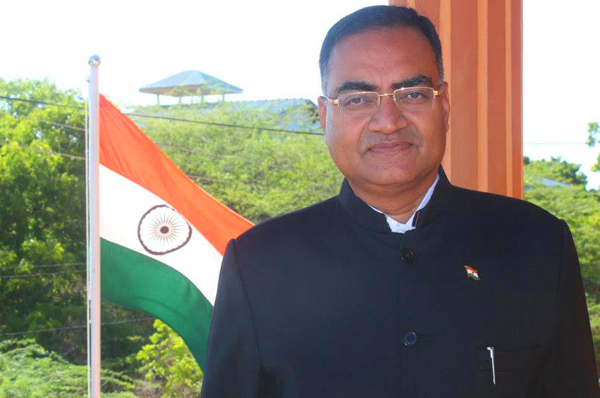Whenever people talk about gender issues, an old axiom comes readily to mind: whatever men can do, women can also do (or do better). Here, we see a subtle way of conveying that there is some inequality. There is an implied attempt to seek parity and a desire to get to be the same. In brief, it becomes a man versus woman issue.
Nature created the two species of male and female for different purposes and with different qualities, not possessing identical attributes. Nature provided women with forte in aspects of procreation, keeping the family together by bringing in cohesiveness and be an anchor around which the family revolves. At the same time, men, being endowed with physical strength, were the bread winners, providers of security etc. Of course, there were certain common attributes as well such as power of understanding, knowledge etc. These same characteristics are also visible in the animal kingdom.
Over the years of evolution of mankind, the society also brought about changes in their lives and more order was attempted to be put in place. For example, polygamy has been more or less done away with. Some abhor able practices, such as sati which were put in place by mankind, were also removed. On the power-sharing front, equal political rights were given. India is the only country which gave equal rights to men and women right from the day of Independence. Some of the more modern developed countries gave such rights to women much later.
There is no denying the fact that gender inequality exists in our midst. In the Indian context, gender issues appear to be more prominent in urban areas than in rural areas. The issue has become a debating topic, particularly in the media, for various self-serving individuals, NGOs etc. It is indeed a sad commentary that many of these arm-chair experts are making a living out of exploiting gender issues rather than seriously addressing them. Government of India has rightly made a beginning by reserving one-third of the seats in the local village panchayats for women. Even in the defense forces, more and more areas have been opened up for women: education, communication, non-battlefield areas etc.
There is a limit to which legal support can be given by the Government for enforcing the gender equality. In India, where male offspring are seen as inheritors of property and as a successor of the family lineage,and female off-springs are shunned and denied even basic amenities, the start needs to be made at home. What is needed is a change of mindset right from the birth of a girl child – in some cases even before they are born. Gender equality has to be inculcated within the family, gradually proceeding to the society as a whole rather than aggressively debating it as an “us versus them” issue.
About the Author
Raghunathan is a serving diplomat, currently based in South Africa. He has previously served the Indian government in Brussels, Moscow, Dhaka, Ottawa, Kuala Lumpur, Bahrain and Hambantota. A voracious reader, his other interests include movies, politics and sports.


Looking forward to reading your blogs, you can mail us your entries at WriteWithUs@csrindia.org, or upload them at Write With Us.
Donation for Centre for Social Research to Join our effort in rehabilitating Domestic Violence
Discuss this article on Facebook




